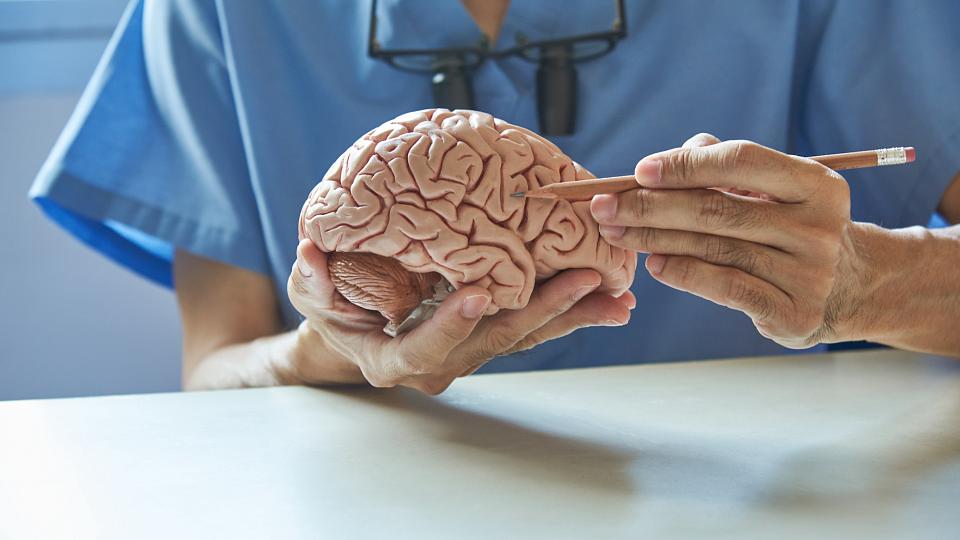
Brain Surgeon
Conditions Treated by a Neurosurgeon:
- Brain Tumors: Removal or biopsy of cancerous and non-cancerous tumors in the brain.
- Aneurysms: Treatment of abnormal blood vessels in the brain to prevent rupture and bleeding.
- Traumatic Brain Injury: Surgical intervention for head injuries caused by accidents or trauma.
- Epilepsy: Surgery to remove or alter the part of the brain causing seizures when medications are ineffective.
- Stroke: Neurosurgeons may be involved in treating strokes that require surgery, such as removing clots or repairing blood vessels.
- Hydrocephalus: Installation of shunts to drain excess cerebrospinal fluid from the brain.
- Spinal Disorders: Neurosurgeons also perform surgeries on the spine to treat conditions like herniated discs, spinal tumors, or spinal cord injuries.
Neurosurgical Procedures:
- Craniotomy: Opening the skull to access the brain for tumor removal or to treat injuries and bleeding.
- Minimally Invasive Brain Surgery: Use of smaller incisions and advanced imaging to perform precise brain surgeries with less risk.
- Endoscopic Surgery: Utilizes an endoscope to access the brain through small incisions, often used for conditions like pituitary tumors.
- Deep Brain Stimulation (DBS): Implanting electrodes in the brain to treat conditions like Parkinson’s disease and other movement disorders.
Neurosurgeon (Brain Surgeon)
Neurosurgeons are brain specialists who treat disorders that require surgical intervention. They operate on the brain, spinal cord, and nervous system.
Conditions Treated by Neurosurgeons:
- Brain Tumors: Both benign and malignant tumors that require surgical removal.
- Traumatic Brain Injury (TBI): Surgery to relieve pressure or repair damage caused by head trauma.
- Aneurysms: Swollen blood vessels in the brain that are at risk of rupturing and causing bleeding.
- Hydrocephalus: A condition where excess fluid builds up in the brain, often treated with shunt surgery to drain the fluid.
- Epilepsy: Some cases require surgery to remove or disconnect the brain regions causing seizures.
- Cerebral Hemorrhage: Surgery to remove blood clots or relieve pressure from bleeding in the brain.
- Spinal Cord Injuries and Disorders: Treatment of herniated discs, spinal tumors, or injuries that affect the brain’s connection to the body.
Neurosurgical Procedures:
- Craniotomy: Surgery where part of the skull is removed to access the brain for a tumor removal and aneurysm repair.
- Endoscopic Brain Surgery: A minimally invasive approach using a camera and small tools to access areas of the brain.
- Deep Brain Stimulation (DBS): A procedure where electrodes are placed in specific parts of the brain to treat conditions like Parkinson’s disease.
- Stereotactic Surgery: A highly precise technique used to target specific areas of the brain, often for treating tumors or epilepsy.
Neurologist Brain Surgeon)
A neurologist is a doctor who treats conditions of the brain, spinal cord, nerves, and muscles using non-surgical approaches like medications, therapies, and lifestyle changes.
Conditions Treated by Neurologists:
- Migraines or Chronic Headaches: Neurologists treat migraines, tension headaches, or cluster headaches.
- Stroke: They manage stroke recovery and rehabilitation, helping patients regain function and prevent future strokes.
- Epilepsy: Seizure disorders are treated with medications to the control seizures.
- Dementia and Alzheimer’s Disease: Neurologists diagnose and manage progressive memory loss and cognitive decline.
- Parkinson’s Disease: A neurodegenerative disorder that causes tremors, muscle rigidity, and slowed movements.
- Multiple Sclerosis (MS): An autoimmune condition that affects the brain and spinal cord, leading to weakness or coordination problems.
- Sleep Disorders: Conditions like a narcolepsy, insomnia, or sleep apnea.
- Brain Infections: Such as encephalitis or meningitis.
- Movement Disorders: Including Huntington’s disease, essential tremor, and dystonia.
- Peripheral Neuropathies: Neuropathies caused by diabetes or other diseases, leading to numbness or pain.
Diagnostic Tools Used by Neurologists:
- MRI (Magnetic Resonance Imaging): Provides detailed images of the brain to detect conditions like tumors, strokes, and multiple sclerosis.
- CT Scans: Used for detecting brain injuries, bleeding, and tumors.
- EEG (Electroencephalography): Measures electrical activity in the brain, useful in diagnosing epilepsy.
- EMG (Electromyography): Tests the electrical activity of muscles and nerves, often used to detect neuropathies or myopathies.
- Nerve Conduction Studies (NCS): Measures how well electrical signals travel through peripheral nerves.
Training and Education of Brain Surgeon:
Both neurologists and neurosurgeons undergo extensive training:
- Medical School: Both complete a 4-year medical degree (MD or equivalent).
- Residency:
- Neurologists: Complete a 3-4 year residency in neurology.
- Neurosurgeons: Complete a 6-8 year neurosurgical residency.
- Fellowships (optional): Both may undergo additional specialized training in areas like neuro-oncology (brain tumors), stroke, epilepsy, or pediatric neurology.
When to See a Neurosurgeon:
- Chronic, severe headaches or migraines not responsive to treatment.
- Symptoms of neurological conditions like seizures, dizziness, or memory loss.
- Spinal pain, numbness, or weakness in the limbs caused by nerve compression or injury.
- Diagnosis of brain or spinal tumors, aneurysms, or traumatic brain injury.
At our Neurosys Multispeciality Center, we perform several key procedures including Craniotomy, which is primarily for the excision of brain tumors; V-P Shunt Surgery for treating hydrocephalus; surgeries for epilepsy; and operations targeting brain stem glioma. Beyond these, we offer a range of other neurosurgical services. If you have any questions that are not answere, please contact us through our Contact Us or Book your Appointment.
